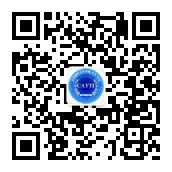China Accreditation Test for Translators and Interpreters (CATTI)
I. About CATTI
China Accreditation Test for Translators and Interpreters (hereinafter referred to as CATTI) is a state-level vocational qualification examination entrusted by the Ministry of Human Resources and Social Security (MHRSS) of the People’s Republic of China and implemented and administrated by the China International Publishing Group (CIPG). Included in the list of vocational qualifications of China’s State Council, the CATTI is the most authoritative translation and interpretation proficiency accreditation test, which has been implemented throughout the country according to uniform standards and in compliance with the national system of professional qualification certificates. It is designed to assess the proficiency and competence of candidate translators and interpreters.
The CATTI was launched to strengthen the management of the translation industry, standardize the translation job market, upgrade the quality of translators and interpreters, and scientifically, objectively and impartially evaluate the level and ability of translation professionals, so that the Chinese translation industry can further align with international standards and provide excellent and qualified translators and interpreters for the exchanges and cooperation between China and other countries in the sectors of politics, economics, culture, and education, among others.
II. Validity
The MHRSS and the CIPG jointly issue the Translation and Interpretation Proficiency Qualification Certificate of the People's Republic of China, which is well accepted by employers.
1. The CATTI is the only language test that is included in China's national vocational qualification system. In 2017, the translation qualification exam was included as the only language exam in the State Council's list of vocational qualifications.
2. The certificate is one of China’s top ten authoritative certificates. In 2016, The People's Daily and other Chinese mainstream media cited it as one of the top ten authoritative certificates in the country.
3. The certificate corresponds to the Chinese professional title system. The certificate is a professional title certificate for professional translators and interpreters with following equivalents: Level-3 certificate recipient for assistant translator (teaching assistant), Level-2 for translator (lecturer), and Level-1 for assistant senior translator (associate professor) and senior translator (professor).
4. It is a must for candidates of Master of Translation and Interpreting (MTI) in China. According to the relevant policies of China’s Ministry of Education, a postgraduate for master’s degree majoring in translation and interpretation without a certificate of Level 2 or above must pass the exam during his/her study in the college. The CATTI has been included in the quality control system of the teaching management of colleges and universities for translation master’s degree candidates by the National Translation Masters Professional Education Degree Committee. The proportion of passing the Level-2 exam has also been taken as an important assessment for the performance of translation majors in colleges and universities.
5. Those with a certificate can apply for the membership of the Translators Association of China (TAC). According to TAC’s policies, those who obtain the certificate for Level 3 and above are qualified to become TAC members. Those with the certificate for Level 1 and above are qualified to become TAC’s senior members.
6. The certificate has become an essential or priority condition for employment. The certificate has become the "national standard" for evaluating the level of translators and interpreters, and it is an indispensable certificate for recruiting translators and interpreters by many agencies, enterprises and institutions, especially large translation companies.
7. The certificate has become an important qualification for popular cities to recruit high-end talents. The certificate has been included in the qualification requirements for high-end talent introduction and hukou (registered permanent residence) registration in popular cities such as Beijing and Shanghai.
8. The certificate has become the key qualification for project bidding. The certificate has been listed by the United Nations and the Chinese government as a basic qualification for the application of many large translation projects and research projects.
9. The CATTI enjoys growing international influence. The CATTI is the world's largest translation examination. It is China's first vocational qualification examination to set up test centers overseas. It is promoting mutual recognition with existing international translation examination certificates.
III. Registration
The CATTI is a professional qualification examination for the whole country. Any person who has a certain level of foreign language skills can apply for corresponding language tests, Level 2 and Level 3, irrespective of age, education background, qualifications and status.
There are test rooms for translation qualification examinations in all provinces, autonomous regions and municipalities under the direct jurisdiction of the central government in the Chinese mainland. Candidates can apply for tests in any available language, level and category.
The CATTI is gradually being opened overseas. Non-Chinese nationals, Chinese students studying abroad, and practitioners can apply for the test in the country where the test center is located.
IV. Languages, and team of experts, level of certificates, and corresponding ability
1. Languages. The eight languages to be tested in the CATTI include English, Japanese, French, Russian, German, Spanish, Arabic, and Korean. The tests for English, Japanese, French, and Arabic Levels 1, 2, and 3 are held in the first half of the year; The second half see those for English Level-2 and -3 translation and interpreting as well as simultaneous interpreting, in addition to those for Russian, German, Spanish and Korean Level 1, 2 and 3.
2. Team of experts. There are nine expert’s committees, including eight language expert’s committees and one university promotion committee, composed of nearly 300 authoritative experts from domestic and foreign government agencies, universities, enterprises and institutions. In addition, the CATTI administration has established a group of 1,000 experts specializing in proposition, reviewing and scoring.
3. The level of certificates. It is divided into four levels: Senior Translator, Level 1, Level 2, and Level 3. The Senior Translator certificate is granted after the appraisal of the expert’s committee, that for Level 1 is issued after the appraisal and the examination, and those for Level 2 and Level 3 are granted after passing the examination.
4. Corresponding ability.
For Senior Translator, he/she should have extensive knowledge, be familiar with the cultural background of China and relevant language countries, and have profound Chinese and foreign language skills; be competent for high challenge of professional translation, capable of solving major difficult problems in professional translation, and good enough to examine and finalize translation work for major events, and capable of interpreting for important negotiations and international conferences; be precise in translation, which can exactly convey the meaning of the original story; have in-depth research on the theories of translation and interpreting, be capable of organizing and guiding translation professionals to complete various translation tasks, and make remarkable achievement in fostering translation talents.
For Level-1 certificate recipient, he/she should be familiar with the cultural background of China and related language countries, and highly skillful in both Chinese and foreign languages; be competent in a wide range of tough professional translation tasks and be able to undertake interpretation or finalization work on important occasions, and can resolve knotty problems in translation and interpreting; have done considerable research in translation practice or theory, have a good understanding of the original text, have high presentation skills in both Chinese and foreign languages, have published books or stories of translation; have outstanding performance in translation, and be capable enough to organize and guide translation professionals at Level 2 and 3 to complete various translation tasks.
For Level-2 certificate recipient, he/she should have a relatively systematic basic knowledge of foreign language and translation theories; be able to independently undertake translation or interpretation work with a certain degree of difficulty in this specialty, and be fluent in language and accurate in translation.
For Level-3 certificate recipient, he/she should be able to complete general interpretation or translation work. Interpreters should be able to express the original intentions of all parties in the conversation, and the pronunciation and intonation should be basically correct; translators should be able to express the original content of general difficulty, the grammar is basically correct, and the translation makes sense.
V. Subjects, Methods & Time
The translation includes two subjects, “Translating Comprehensive Aptitude” and "Translating Practice". The testing time for “Translating Comprehensive Aptitude” is 120 minutes, and that for “Translating Practice” 180 minutes.
The interpretation includes two subjects, “Interpreting Comprehensive Aptitude” and “Interpreting Practice”. The testing time is 60 minutes, and the one for “Interpreting Practice” of Level 3 is 30 minutes.
Computer is available for all domestic testing, while computer or paper testing is decided for overseas in accordance with the local condition.
VI. Progress
2003: First launch of English pilot test.
2004: First launch of French and Japanese tests.
2005: First launch of English simultaneous interpreting, with examinees surpassing 10,000.
2006: First launch of Russian, German, Spanish, and Arabic tests.
2008: Integrating the CATTI with MTI.
2012: First launch of English Level 1.
2016: CATTI’s certificate is cited as one of China’s top ten authoritative certificates by the mainstream media in the country, with a record number of examinees exceeding 100,000.
2017: The CATTI is included in China's list of national vocational qualifications.
2018: The number of examinees surpasses 200,000;
2019: The CATTI becomes the first Chinese vocational qualification test to open test centers overseas;
2020: First launch of Korean.
VII. Internationalization
The year 2019 witnessed CATTI’s first launch of test overseas at the Belarusian State University. To date, test centers have been opened in Moscow and St. Petersburg, Russia, and Minsk of Belarus. 2020 will see more test centers open in other countries, such as Singapore, Malaysia, Thailand, and Canada.
Starting from 2020, the CATTI will gradually promote the mutual recognition of certificates with existing translation examinations in other parts of the world.
The CATTI is receiving widespread attention from the global translation community. More than 160 countries and regions have shown concern for the CATTI through the official website.
Appendix:
Official microblog (Weibo): "Yilutong" (link)
Official WeChat account: "Yilutong" (QR code)

"CATTI Center" (QR code)

Official website: (link)